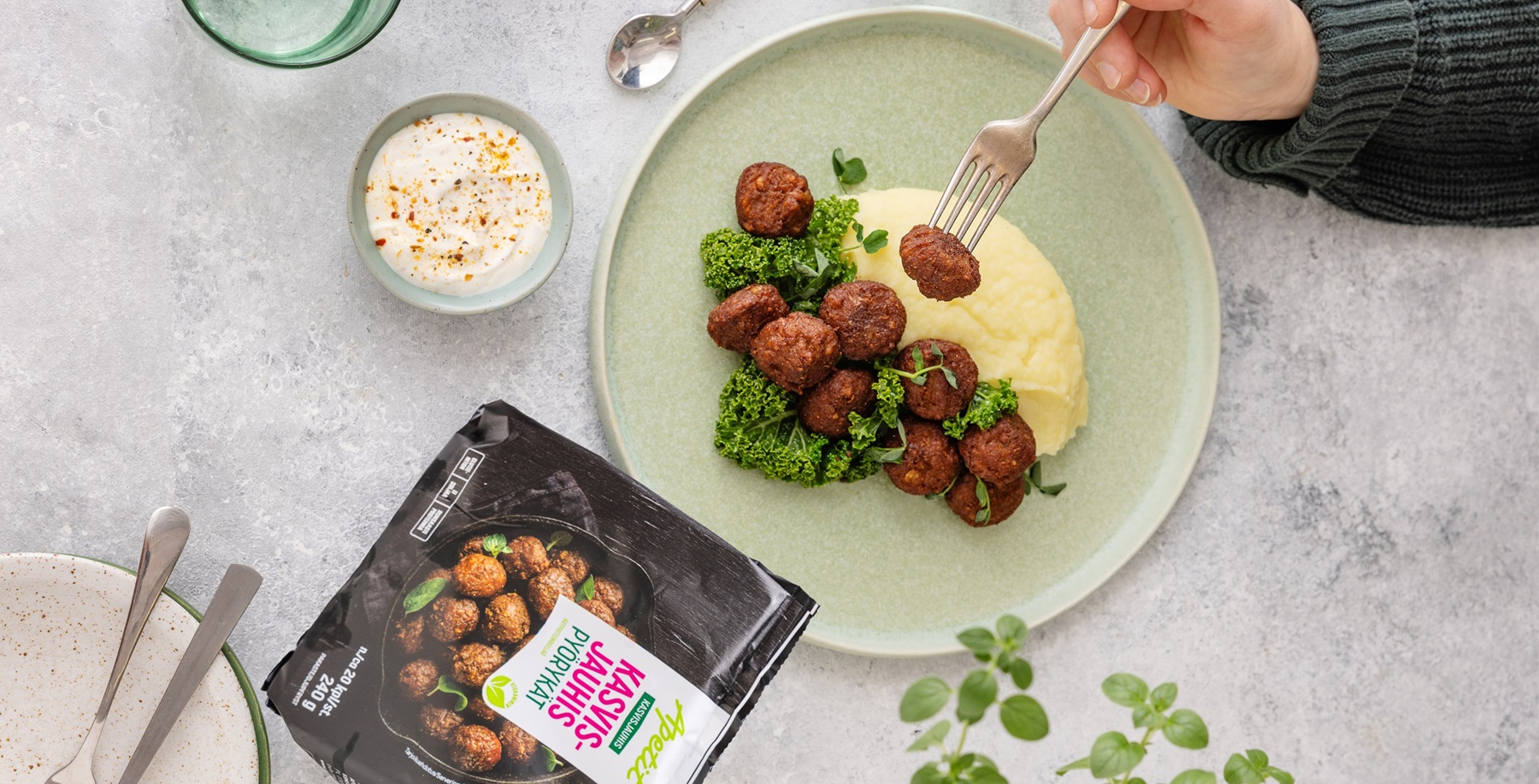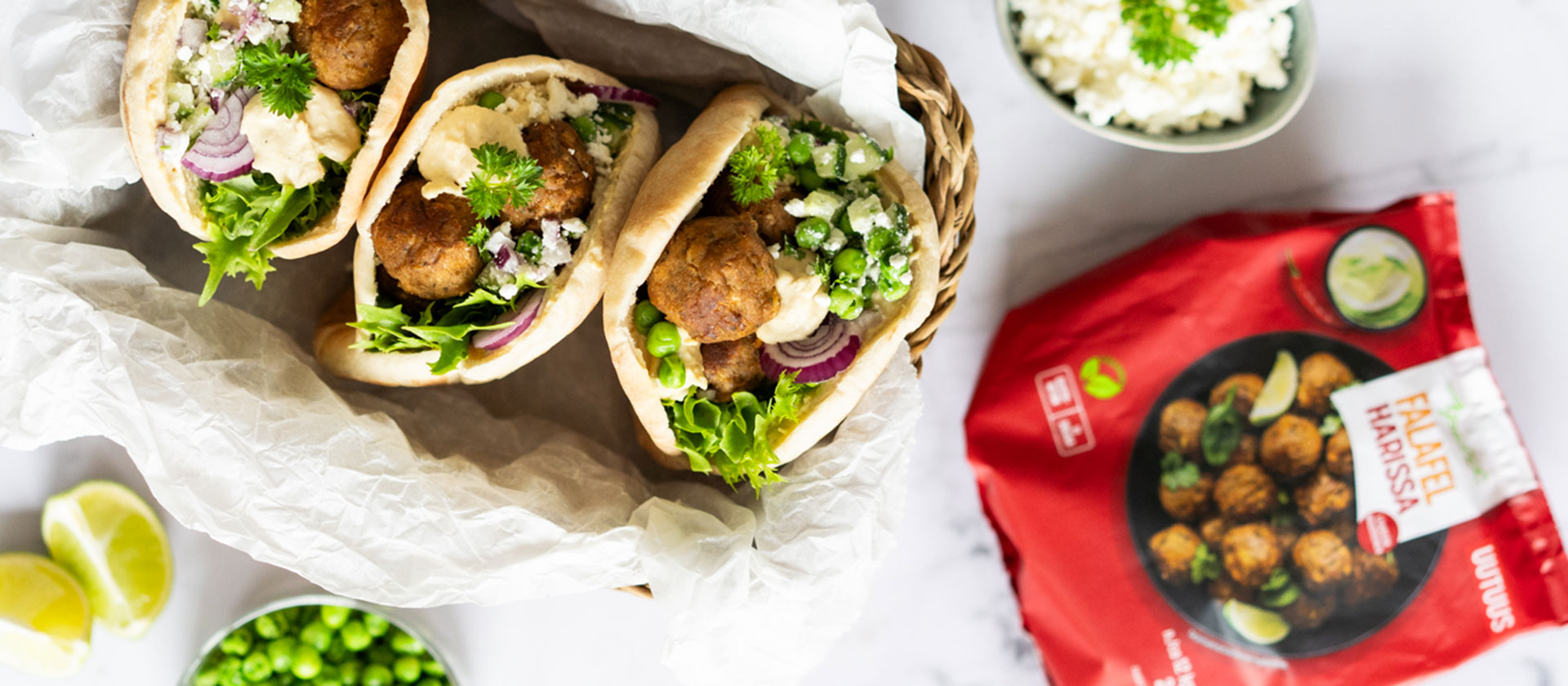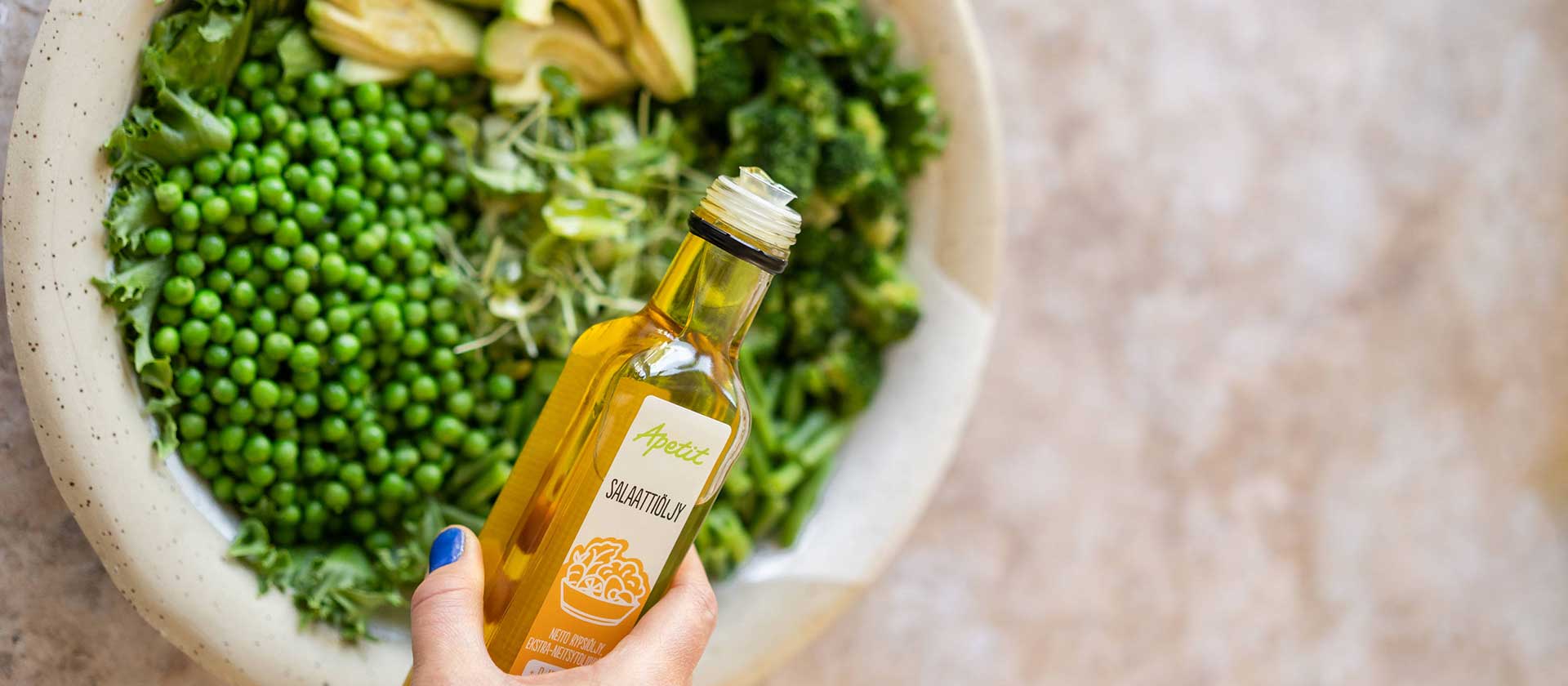Positive trend continued in Food Solutions – Grain Trade volumes declined as predicted due to weak harvest season
Since 1 January 2018 Apetit has started reporting its first (Q1) and third (Q3) quarter results as Business Reviews. The Half-year Financial Report (Q2) and Financial Statements Release (Q4) will provide more extensive reporting and contain segment information.
JANUARY–MARCH 2018 IN BRIEF
- Consolidated net sales amounted to EUR 59.7 (74.0) million.
- Operational EBITDA was EUR 0.0 (0.4) million.
- Operational EBIT was EUR -1.4 (-1.0) million.
- Profit for the period came to EUR -1.7 (-1.4) million, and earnings per share amounted to EUR
-0.27 (-0.23).
The information has not been audited. The figures in parentheses are the equivalent figures for continuing operations for the same period in 2017, and the comparison period means the corresponding period in the previous year, unless otherwise stated.
Juha Vanhainen, CEO:
“The key focus areas of the strategy that was updated at the beginning of March – renewal, internationalisation and efficiency improvement – have defined activities in all the Group’s business operations during the first months of the year.
We continued to be a leader in the area of vegetable-based diets by introducing to the market several new products in different product groups. We also expanded into a new product group area, which was ready-to-eat, portable snack products, by launching vegetable snacks and bowl dishes. Demand for various snacks has grown and will continue to grow significantly, as more and more people are replacing meals with snacks when they are on the move. As part of its nutrition commitments, Apetit wants to offer healthy alternatives in this product group and make it easier for people in different age groups to increase the amount of vegetables in their diet.
Internationalisation progressed in line with targets, as the share of international trade in the food trade in January-March 2018 had already equalled that of the full year in 2016. Apetit has traditionally been an important operator in the international grain trade, but the company now also wants to significantly increase the share of international trade in the food trade. Apetit’s food products that attract the most international interest are added-value products, such as vegetable patties and balls, as well as peas.
The Group’s net sales declined as predicted from the comparison period as a result of the weak harvest season in 2017. The weak harvest season had the greatest impact on the grain trade where sales volumes have declined temporarily also weakening the first-quarter profit. Positive profit performance continued in Food Solutions where sales of frozen and fresh foods grew strongly. In Oilseed Products, production grew slightly on the comparison period in line with the target set in the strategy.
We continue our measures to improve profitability. As a result of the sale of the Seafood business we are focusing on simplifying our operations and boosting their efficiency throughout the Group. Our clear target is to ensure profitable growth.”
KEY FIGURES
|
EUR million |
1-3 |
1-3 |
Change |
2017 |
|
CONTINUING OPERATIONS, KEY FIGURES |
|
|
|
|
|
Net sales |
59.7 |
74.0 |
-19% |
311.8 |
|
Operational EBITDA |
0.0 |
0.4 |
|
6.8 |
|
Operational EBIT |
-1.4 |
-1.0 |
|
1.3 |
|
Operating profit |
-1.4 |
-1.0 |
|
1.1 |
|
Share of profit of associated company Sucros |
-0.5 |
-0.6 |
|
1.0 |
|
Profit for the period |
-1.7 |
-1.4 |
|
2.9 |
|
Earnings per share, EUR |
-0.27 |
-0.23 |
|
0.46 |
|
Working capital, at end of period |
30.2 |
42.2 |
|
30.0 |
|
GROUP, KEY FIGURES incl. discontinued operations during comparison period, Seafood |
||||
|
Equity per share, EUR |
17.19 |
18.08 |
|
18.10 |
|
Return on capital employed (ROCE), % |
2.5% |
1.3% |
|
2.4% |
|
Net cash flow from operating activities |
-4.5 |
-0.5 |
|
20.0 |
|
Equity ratio, % |
73.6% |
62.2% |
|
72.6% |
|
Gearing, % |
-5.4% |
14.9% |
|
-9.6% |
|
Investment |
0.7 |
1.4 |
|
5.2 |
FINANCIAL PERFORMANCE IN REVIEW PERIOD
Consolidated comparable net sales declined 19 per cent to EUR 59.7 (74.0) million. The decline in net sales resulted in full from the temporary decline in Grain Trade volumes. In contrast, in Food Solutions net sales grew considerably in both frozen foods and fresh products in all sales channels. In Oilseed Products, net sales fell slightly short of the comparison period as deliveries focused on expellers during the first quarter.
Consolidated operational EBIT was EUR -1.4 (-1.0) million. In the Grain Trade, profitability was weakened by reduced volumes due to a weak harvest season. In Food Solutions, profit improved as a result of record sales in the frozen foods group. In Oilseed Products, profitability fell slightly short of the comparison period as the weak harvest season reduced the availability of Finnish raw materials.
The Group’s liquidity was good, and its financial position is strong. The equity ratio was 73.6 (62.2) per cent, and gearing was -5.4 (14.9) per cent. Consolidated cash flow from operating activities after interest and taxes amounted to EUR -4.5 (-0.5) million in January-March mainly due to the increase in grain stocks.
SEASONALITY OF OPERATIONS
In accordance with the IAS 2 standard, the historical cost of inventories includes a systematically allocated portion of the fixed production overheads. With production focusing on harvest time, raw materials are mainly processed into finished products during the final quarter of the year. This means that more fixed production overheads are recognised on the balance sheet in the fourth quarter than during the other quarters of the year. Due to this accounting practice, most of the Group’s annual profit is accrued in the final quarter. The seasonal nature of profit accumulation is most marked in the frozen foods group of the Food Solutions segment and in the associated company Sucros, where production reflects the crop harvesting season.
IFRS 15 REVENUE RECOGNITION – ADOPTION OF STANDARD
Apetit is applying the IFRS 15 Revenue Recognition standard as of 1 January 2018. Adjustments based partly on volume will be recognised as an adjustment to net sales. These items were previously recognised in expenses. The change will not have an impact on the operating profit. As a result of the change, net sales will decline by about EUR 2 million per year. The updated net sales for Q1 2017 is EUR 74.0 (previously 74.6) million and the updated net sales for the full year 2017 is EUR 311.8 (314.0) million.
PROFIT GUIDANCE FOR 2018 UNCHANGED
The Group’s full-year operational EBIT from continuing operations is expected to improve year-on-year (EUR 1.3 million in 2017). Due to the seasonal nature of the Group’s operations, most of the annual profit is accrued in the second half of the year. Sales volumes and the profit outlook for early 2018 are burdened by the weak harvest of 2017.
Apetit Plc
For further information, please contact:
Juha Vanhainen, CEO, tel. +358 10 402 00
Apetit is number one in vegetables. It is a food industry company firmly rooted in Finnish primary production. We create well-being with vegetables by offering healthy and tasty food solutions that make daily life easier. We also produce high-quality vegetable oils and rapeseed expellers for feeding stuff, and trade grain on the international markets. Apetit seeks to lead the way in vegetable-based food solutions. Apetit Plc’s shares are listed on Nasdaq Helsinki. In 2017, the company’s net sales were EUR 312 million and it had approximately 640 employees. Read more at apetitgroup.fi.
Related articles

CEO’s review Q4/2024
Esa Mäki, CEO: “The full-year operating result from Apetit’s continuing operations improved from the comparison year. Food Solutions achieved a clear improvement in profit performance and Oilseed Products was slightly behind the comparison year’s result. The profit improvement in Food Solutions reflects the systematic work to improve profitability. Product portfolio management and product group-specific sales development have contributed to this profit improvement. The success of from field to freezer chain and harvest season production strengthened the result of Food Solutions. One factor behind the decline of the operating result in Oilseed Products was the decrease of market prices. The Group’s full-year net sales decreased clearly from the comparison year due to the decline in oilseed product market prices. In Food Solutions, net sales grew slightly from the comparison period. In both businesses, sales volumes declined mainly due to normal yearly fluctuations. Food Solutions performed more strongly than expected in the fourth quarter. Also Apetit’s operating result in the final quarter of the year improved from the comparison period. During the year under review, we promoted several strategically significant projects. The update of the Group’s ERP system progressed on schedule; deployment of the system in Food Solutions was carried out at the turn of September and October 2024. The project continues towards deployment of the ERP system in Oilseed Products during the second half of 2025. Deployment in Food Solutions was carried out successfully thanks to competent personnel and good planning. The bottling line at the Kantvik vegetable oil milling plant became operational as planned. With the new line, we are taking the supply chain of vegetable oils firmly into our own hands. In addition, the bottling line makes it possible to develop products with a higher degree of processing. The bottling line investment was realised as budgeted, amounting to approximately EUR 4.5 million. Thanks to the new bottling line, we have been able to reduce the amount of plastic we use in vegetable oil bottles by 41 per cent on average. One of Apetit’s strategic focus areas is More domestic plant proteins. We have taken steps in the commercialisation of our BlackGrain rapeseed powder. Development work has focused on improving the production process. We have started analysing different options for the production of BlackGrain plant protein. The analysis assesses potential partnerships and the organisation of production either through making an investment in the Kantvik vegetable oil milling plant or with purchased services. The analysis is expected to be completed in late 2025. The Finnish pea protein project is continuing as planned. In 2024, we conducted small-scale testing with Finnish raw materials to produce pea protein. Work carried out in the project has focused on trial runs and technology comparison to consolidate the competitive advantage. Increasing food exports and strengthening our position in Sweden is also one of our strategic focus areas. In order to achieve this goal, we established our own sales organisation in Sweden at the beginning of 2024. The strengthening of Apetit’s position in Sweden progressed. Besides retail, we have now expanded to Food service sector. We are pleased with the Finnish harvest season for both businesses. The frozen pea harvest from a record-large contract farming area was largely in line with expectations and the field-to-factory process ran smoothly. The root vegetable growing season was long, thanks to the warm autumn, and the quality and quantity of the harvest were mainly in line with the targets. According to the Natural Resources Institute Finland’s harvest forecasts, the total Finnish rapeseed harvest increased by more than a fifth. With regard to oilseed plants, things are developing in the right direction and we at Apetit are working to increase the cultivation of domestic oilseed plants. In both of our businesses, we want to use as much domestic raw materials as possible. Increasing the cultivation area of frozen peas and domestic oilseed plants is one of our strategic focus areas. The price increase of food stopped in 2024, but the higher price level is still reflected in consumer purchasing behavior. The new national nutritional recommendations published in the autumn recommend a varied diet with plenty of vegetables and adequate use of vegetable oils. Apetit focuses on domestic and plant-based raw materials as well as products that promote well-being and sustainable consumption. The cornerstones of Apetit’s product selection are relatively affordable and in many respects meet the requirements of consumers today: they are a responsible choice that supports people’s well-being and suit their budget in daily life. We expect demand to remain high in Apetit’s various product categories. At the beginning of the strategy period 2023–2025, we set the following financial objectives: operating result (EBIT) of more than EUR 9 million and return on capital employed (ROCE) of more than 8 per cent. By the end of 2024, we achieved the financial objectives set for the period. We will continue to develop Apetit in line with our vision: Growing and profitable market leader in plant-based products. I would like to take this opportunity to warmly thank all Apetit employees for the year 2024 and the owners, customers, contract growers and other partners for their cooperation.”

CEO's review Q3/2024
Esa Mäki, CEO: “Apetit’s operating result in the third quarter improved from the comparison period. In Food Solutions, operating result grew clearly year-on-year and the result of Oilseed Products was at the same level as last year. One of the factors behind the improvement in Food Solutions was the normal seasonal fluctuation between quarters. The Group’s net sales increased slightly from the comparison period. In Food Solutions, net sales grew especially in retail trade. Also in the Food service sector, development continued to be strong. In Oilseed Products, net sales were on a par with the comparison period. Apetit Group’s operating result in January–September improved from the comparison year and both businesses are ahead of the result for the comparison period. We continue to maintain our profit guidance, according to which the Group’s operating profit is estimated to be at the same level as in the comparison period. In the strategically important ERP project, the production implementation for Food Solutions was carried out successfully as planned. The critical production and order-delivery system functions were successfully deployed at the turn of September and October. Important support systems also came into use at the same time. The ERP project will continue according to the planned schedule until the second half of 2025, proceeding to the production implementation phase in Oilseed Products. The bottling line at the Kantvik vegetable oil milling plant has become operational as planned. The line will be up and running at full capacity in late 2024. The first new Apetit Kotimainen Rapeseed Oil bottles have been produced on the line, and they will gradually be rolled out to retail stores during the rest of the year. The bottling line enables a production method that significantly reduces the amount of plastic as well as logistic load associated with empty bottles. From now on, our plastic use will decrease on average by 41 per cent, taking into account all three sizes of Apetit’s rapeseed oil plastic bottles. The bottles receive their final shape only when they are on the bottling line, which significantly reduces the space required at all stages of the logistics chain. In addition to the new shape, all bottles have a new look and feel and are now part of the Apetit Kotimainen product family. The commercialization of BlackGrain rapeseed powder is progressing. Over the past year, work with BlackGrain has focused on developing the production process and starting production on a commercial scale. In addition to developing the production process, we have, for example, invested in developing the product's various use cases, both internally at Apetit and together with customers. The harvest season for field vegetables has progressed well. For domestic frozen peas, the harvest season was successful as a whole. We processed more frozen peas than in previous years and the field-to-factory process ran smoothly. For root vegetables, the situation looks good – the long, warm autumn contributed to their growth. Harvest-time production has proceeded as planned. The success of the harvest season will be ultimately determined by the harvest conditions in late autumn and preservation of processability until freezing. According to the harvest estimate of the Natural Resources Institute Finland*, the domestic turnip rape and rapeseed harvest is expected to increase by more than 40 per cent from last year, to 58 thousand tonnes. If the estimate is realised, the harvest would reach its highest level since 2018. The direction is good, but we hope that the turnip rape and rapeseed cultivation area and harvest volumes will continue to increase. The current level is not enough to cover Apetit’s targeted annual quantity of domestic raw materials. The sustainable cultivation level of domestic oilseed plants is also important for the security of supply. In the autumn, we launched new products into retail stores. In addition to the new rapeseed oil packaging, we are introducing a new Kotimainen Wok Vegetables mix, spicy Falafel Harissa balls and a hot Nduja Pepperoni pizza. We are also renewing our frozen soup selection, introducing a tomato and lentil soup that is perfectly suited to the new nutritional recommendations. Product development and the continuous renewal of the product selection play an important role in commercial success, alongside classic products.” *Natural Resources Institute Finland, harvest estimate 16.9.2024

CEO’s review H1/2024
Esa Mäki, CEO: "The operating result for the first half of the year was better than that of the comparison period. Both businesses have improved their operating result. We continue to maintain our profit guidance, according to which the Group’s operating profit is estimated to be at the same level as in the comparison period. The outlook for the harvest season is currently fairly good, but the possible realisation of risks related to harvesting will only be seen during the autumn. Net sales in the first half of the year declined, mainly due to lower market prices for oilseed products than in the comparison period. Apetit’s operating result for the second quarter of the year declined from the comparison period. In Oilseed Products, operating result clearly decreased in the second quarter of the year from the strong profits in the comparison period. The result was weakened by the fluctuation in sales volumes between comparison periods. In Food Solutions, operating result was at the same level as last year. The Group’s net sales decreased from the comparison period in the second quarter. The decrease was mainly due to the fall in the market prices of oilseed plants compared to the comparison period, sales volumes also decreased. There were normal fluctuations between comparison periods in the decline in the sales volumes, and no significant change can be seen in this year's production and sales amounts. In Food Solutions, the net sales were almost on a par with the comparison period. Sales volumes decreased from the comparison period. The decline in volumes was impacted by export sales of frozen peas that occurred at different times during the comparison period. The work on the new bottling line for the Kantvik vegetable oil milling plant is progressing. The construction work related to the property is in the final phase and the installation of equipment has started. The investment of approximately EUR 4.5 million is expected to be completed according to the original schedule in the second half of the year. The harvest season of Finnish field vegetables has progressed largely as planned. The hot and dry spring posed challenges for the growth of spinach and the first-sown peas, but the harvest outlook is mostly within expectations. The harvest outlook for root vegetables is also good before the harvest season. For the current harvest season, we increased the frozen pea cultivation area to 1,800 hectares. Domestic frozen peas play a central role in our strategy. By increasing pea cultivation, we want to meet the growing demand for exports. The cultivation areas for Finnish turnip rape and rapeseed increased from last year. The beginning of the harvest season was strained by drought, which caused uneven seedling emergence and pest pressure. After Midsummer, the weather has been more favourable for oilseed plants, and we believe that the harvest outlook in Finland is average. Our goal is to further increase the use of Finnish turnip rape and rapeseed at our vegetable oil milling plant. Domestic origin is a significant differentiating factor in vegetable oils. Work on Finnish cultivation development has continued at both the Räpi experimental farm and the RypsiRapsi forum’s cultivation tests. The focus of the RypsiRapsi forum’s trial activities during the current harvest season is on variety tests carried out as strip and square tests. In April, a multi-year project co-funded by the European Union was launched with the aim of increasing the cultivation reliability and volume of turnip rape and rapeseed in Finland. The project is a concrete demonstration of the desire to increase the cultivation of Finnish oilseed plants. The Räpi experimental farm has focused particularly on further research into pea varieties. The aim of the experiments is to find varieties that can withstand Finland’s changing cultivation conditions. In recent years, we have seen even greater variations in conditions, from heavy rain to heat and drought. Increasing pressures from diseases and pests are also taken into account in the variety tests. At Räpi, variety tests are carried out on carrots and swedes, for example, with the aim of finding new varieties for use by contract growers. We will continue to work on the focus areas in line with the strategy. For the BlackGrain rapeseed powder, the work has focused on developing the production process on a commercial scale. The pea protein project has continued small-scale testing to produce pea protein from Finnish raw ingredients. With both projects, we are increasing the opportunities for raising the added value of Finnish raw ingredients. The important ERP project has progressed according to schedule. The first phase of production implementation is scheduled to take place in the second half of the year. Some of Apetit’s operations have already implemented the new ERP system at the end of last year. Food inflation has slowed and turned negative in June. There are still major differences between product categories, and no significant change in consumer behaviour has been observed. Affordability is still an important criterion in purchase decisions. Apetit’s product range is well suited to the current situation. In the summer, we brought new vegetable oils to the shops. The Salad Oil and Pizza and Pasta Oil from Apetit’s Neito product family are high-quality new products that are suitable for a wide range of cooking and seasoning. The launches of new products will continue this year."
 Share
Share Facebook
Facebook
 LinkedIn
LinkedIn
 Email
Email

